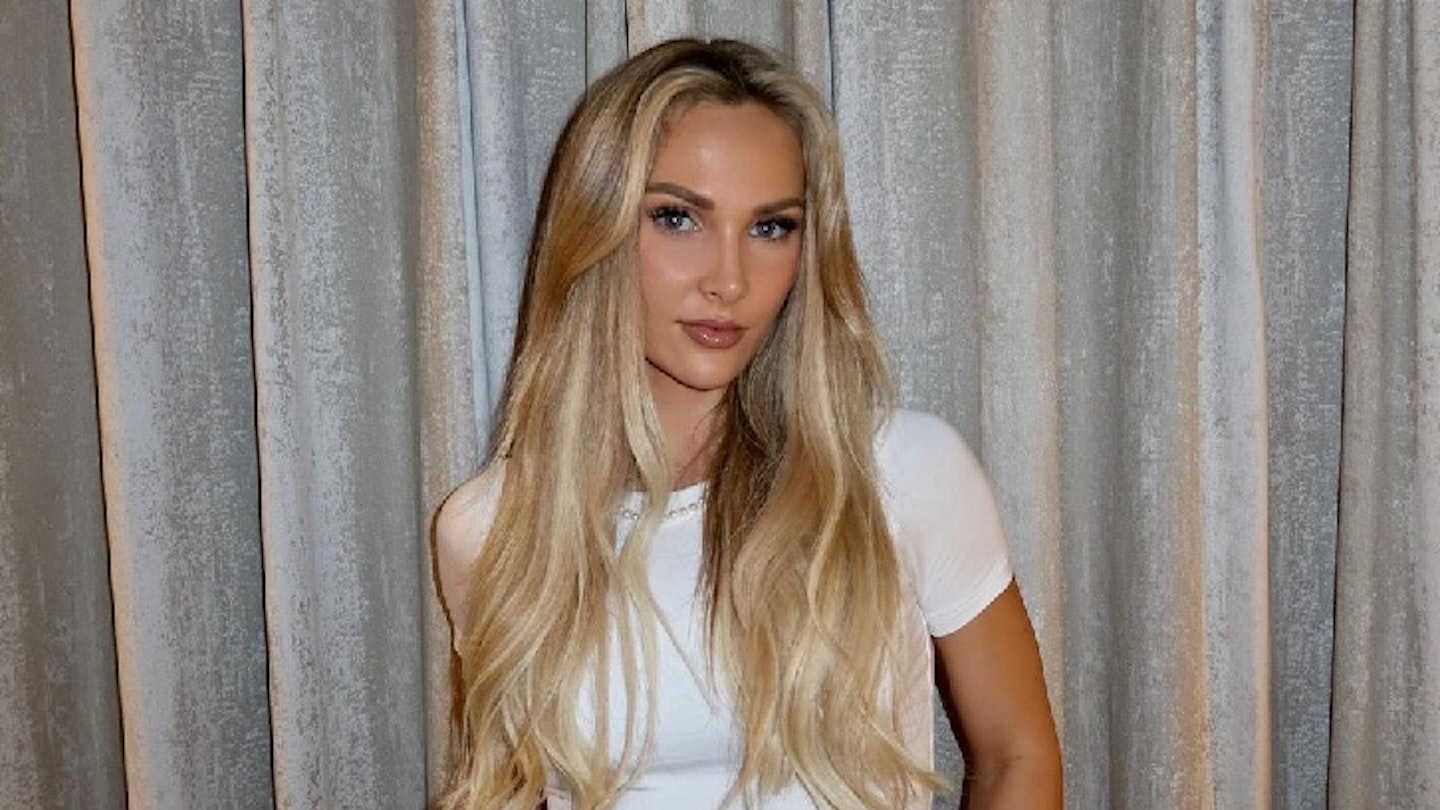Trigger Warning: This article contains mentions of personal experiences of eating disorders and body dysmorphia - please proceed with caution.
Love Island's Jessie Wynter has opened up about her experience with body dysmorphia, raising awareness for eating disorder awareness week. In a candid chat with Grazia, the 27-year-old Australian influencer says her second stint on Love Island (as part of the 2023 UK series), actually triggered a relapse in her condition.
‘The first time I did Love Island in Australia I had just started to get professional help for body dysmorphia,' Jessie says. 'I was very headstrong and I was so determined to be a positive role model and not let my mental health get in the way of me.
‘However, when I did Love Island UK, I did have a small relapse which is actually very common for anyone that's experienced eating disorders. I don't think people need to be ashamed when going through a relapse, the thing is that matters that I immediately sought help. ITV were absolutely incredible with the support that they gave.’

Jessie continues, ‘It was so hard to come out of the villa and read what people were saying about my body, especially because I had actually lost weight whilst I was in the villa. But as hard as I found it to read those comments, the most concerning thing is actually the impact that it has on other people who might be reading these comments.’
Jessie Wynter was diagnosed with body dysmorphia in her early 20s. According to the NHS, Body Dysmorphic Disorder is a mental health condition where a person spends a lot of time worrying about flaws in their appearance.
‘People of any age can have BDD, but it's most common in teenagers and young adults,' the NHS website reads. 'It affects both men and women. Having BDD does not mean you're vain or self-obsessed. It can be very upsetting and have a big impact on your life.’
For Jessie, her eating disorder manifested itself as pushing herself too hard in the gym and developing a strict schedule so as to avoid eating enough to sustain her.
‘My behaviour became obsessive,’ she explains. ‘I had a very, very strict routine on what I ate and when I ate and if I went out of that routine, it would trigger a massive anxiety attack. I would feel like I'd gone off the rails and I would feel really really helpless. I also started using work as an excuse saying I was too busy to eat.
'I didn't even look like me, because I had lost so much weight.'
Jessie Wynter
‘I've always had issues with body dysmorphia, I mean I got a boob job when I was 19 because I felt like I needed it. The depth of my eating disorder was probably between the ages of 19 and 22. It was a long period where it was really really bad and I do feel like I lost those years of my life to an eating disorder.’
As a result, Jessie’s weight plummeted and she began to experience serious physical symptoms associated with eating disorders including hair loss and no longer menstruating.
‘The thing that triggered me to seek help was my weight loss,' Jessie explains. 'I was not healthy, I had no energy. My hair was falling out. I had iron deficiencies, nutrient deficiencies. I didn't even look like me, because I had lost so much weight. I lost my period… My body was really struggling because of the decisions I was making that were linked to my body dysmorphia.’
Eventually Jessie made a trip to the GP, seeking a remedy to her lack of energy at first, but was quickly diagnosed with body dysmorphia and signed off work almost immediately.
After going to her GP, Jessie was diagnosed and signed off work. She says her recovery hasn’t been an easy journey and that unfortunately, there’s no way of ‘curing’ an eating disorder. But now, Jessie is hoping that by opening up about her own experiences with body dysmorphia, she can help reduce the stigma surrounding eating disorders, especially for her young followers.
‘I do have a lot of days where I still struggle with how I look and some days are worse than others, but I try to remind myself that I’m more than just a body,' she says. 'I am Jessie. I'm intelligent. I've got a loving family around me. One of the things that really helped me change my mindset around my eating disorder was sitting down and I thinking about all the emotion and time that I’d spent obsessing over this eating disorder. If I could take that energy from there and put it into all the other aspects of my life, such as family, friends and helping others, I'd be able to achieve so much.’
If you’ve been struggling with an eating disorder, Beat Eating Disorders can offer support and advice. Their helplines are open 365 days a year.
Daisy Hall is a News and Entertainment writer on Grazia, specialising in TV and film meaning that you can count on Daisy for the latest (and best) recommendations.
